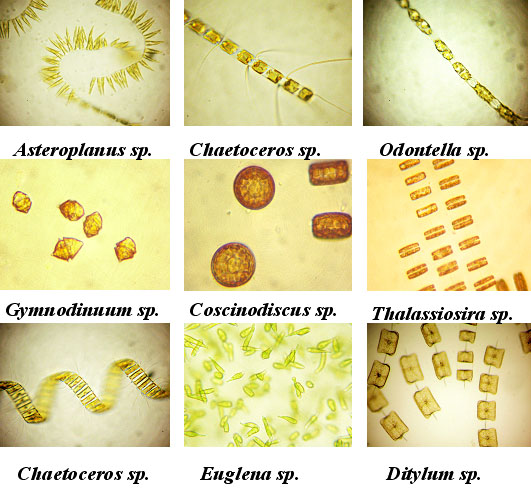Recently, researchers of Marine Biological Culture Collection Centre (MBCCC, URL: www.mbccc.ac.cn) based at the Institute of Oceanology, Chinese Academy of Sciences (IOCAS) in Qingdao have obtained several dozens of microalgal species from the northern Chinese coasts during winter season by use of the latest developed isolation and culture technique. This technical advance marks the start of a long-term culture collection plan in the 12th five-year plan.
The marine microalgae obtained were identified to be the species in Euglenophyta, Bacillariophyta, Chlorophyta, Rhodophyta, Dinophyta and so on (refer to figures)
In the 12th five-year plan (2010-2015), MBCCC has planned to isolate, purify, identify and preserve diverse microalgal species along the Chinese coasts covering cold, temperate, subtropical and tropical zones. MBCCC will develop and establish corresponding barcoding technique to identify and bookmark obtained species. The final goal is to establish a large marine microalgal culture collection centre in China to support the fundamental and applied research of the scientific institutes and universities in China as well as abroad.

(Some of the recently isolated unique marine microalgal species. Pang et al. unpublished)
| HR Development and Education |
| As a major marine research institution in China, IOCAS pays great attention to recruit, retain and support its scientists and supporting staff. Several research groups consisting mainly young scientists play active roles and make creative contributions to the institute’s research. For the research scientists, 48% had Ph.D. degrees with an average age of 38.5. IOCAS is also a major high education center for graduate studies in marine science., To end of 2006, 424 Ph.D. and 514 M.S. degrees in Marine Science have been granted and 70 post-doctoral fellows have finished their training in the institute. Currently, there are 23 post-doctoral fellows, 235 Ph.D. and 237 M.S. graduate students pursuing their studies. |

